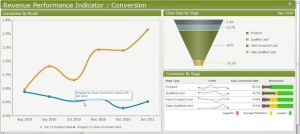The big (new) boys: Hubspot, Eloqua, Marketo … and Salesforce
There’s no doubt that the big boys and big names in this space — the three horsemen of marketing automation, if you will — are Hubspot, Eloqua, and Marketo. And while you may not hear Salesforce mentioned along with these companies, the new Salesforce1 platform means that the massive customer relationship management company — with its existing capabilities and its new vision — is also going to be massive in this conversation.
All four have been around for at least seven years, with Eloqua the eldest, having been founded back in the dark ages of the dot-com bubble in 1999. All have thousands of clients and at least a hundred thousand users. That means they all have a “can’t get fired for choosing me” flavor reminiscent of old-school IBM software buys.
 There are some significant differences, however.
There are some significant differences, however.
Hubspot excels at content management. In fact, Hubspot can actually power your website — perhaps a little simplistic, but a full-fledged content-managed website nevertheless. As such, integration with your website can be no integration at all, although that may require migrating your site over to Hubspot’s platform.
It has a full-fledged app marketplace with over 150 apps that integrate with just about anything you would want and over 100 service providers who can come in, train, work on system and processes, and build custom integrations as you need.
As a content-management system, Hubspot has some of the best search engine optimization tools, including link tracking, keyword analysis that’s built into its content-creation interface, and more. The service is pricy, but it’s not the most expensive, at between $200/month for very limited functionality and $1,000/month for full service. You’ll pay extra per 1,000 managed contact records over a small included number, however, and for very big installations, you can get custom pricing that runs higher.
 Eloqua, which will show up on the next page as well, is one of the real pioneers of marketing automation and does not hesitate to call itself the “most powerful” of marketing automation solutions — while also claiming to be the largest.
Eloqua, which will show up on the next page as well, is one of the real pioneers of marketing automation and does not hesitate to call itself the “most powerful” of marketing automation solutions — while also claiming to be the largest.
It is a powerful solution, with strong capability in targeting and segmentation, measurement and analytics, and in building and running marketing campaigns. Oracle acquired it in 2012 for $871 million, which is at one and the same time a signal of quality, a signal that it integrates well into Oracle’s other enterprise solutions, and a big red flashing alert that its pricing is not cheap.
Eloqua has excellent tools for customer-lifecycle marketing, and its AppCloud hosts over 100 apps integrating your marketing automation solution into lead scoring, data validation, communication (e.g., SMS, email, Twitter, WebEx), and contact data enhancement solutions.
Pricing ranges from $2,000 to $5,000 per month (and up), and integration tends to be a bit of a chore (understatement alert!). It does not currently integrate with Google Adwords to track pay-per-click campaigns.
 Marketo was founded the same year as Hubspot, 2006, and experienced explosive annual revenue growth of 3,545 percent in the years leading up to 2011, which could be a good sign that the company eats its own dogfood and the taste is good.
Marketo was founded the same year as Hubspot, 2006, and experienced explosive annual revenue growth of 3,545 percent in the years leading up to 2011, which could be a good sign that the company eats its own dogfood and the taste is good.
While also a bit on the pricy side, Marketo prides itself on offering a complete solution that, it says, simplifies a marketer’s world. That includes marketing automation across all your channels, a specific email marketing solution, a social media marketing campaign manager, a marketing budgeting and forecasting tool, and analytics and sales insights. CRM, however, is separate, and relies on integrations with third-party providers, such as Salesforce.
The company is also not shy about calling itself the “leading” marketing automation platform, which is difficult to argue as it has perhaps 2,500 customers and manages over five billion campaigns and 25 billion lead-generation activities every year.
Marketo can easily cost $50,000 a year, with prices from $1,200 to $12,000 per month and up, depending on what you want.
 Salesforce is somewhat in a class of its own, because it is a hybrid between a massive integrated platform like what you might expect from an old-school enterprise vendor, and a mix of supporting apps and services in the thousands from hundreds of other companies. And it’s all on a modern, mobile, cloud infrastructure with no software installation required and, theoretically, no integration pain.
Salesforce is somewhat in a class of its own, because it is a hybrid between a massive integrated platform like what you might expect from an old-school enterprise vendor, and a mix of supporting apps and services in the thousands from hundreds of other companies. And it’s all on a modern, mobile, cloud infrastructure with no software installation required and, theoretically, no integration pain.
Of course, Salesforce’s genesis is in CRM, which is a bit more narrow than marketing automation.
But within Salesforce, you can add to established marketing automation tools from Marketo and Hubspot, plus other marketing automation platforms such as Pardot, LeadFormix, SalesFusion, Act-On, and Silverpop (see up-and-comers).
Oracle’s Eloqua, of course, is not there, as Oracle has its own marketing cloud.
But the point is that if you have bought into the Salesforce1 concept and have integrated it into your company’s processes, plenty of marketing-automation tools are within the Salesforce AppExchange. They will require additional payment, of course, and therefore you will be paying for not just your CRM tool but also your automation tool, but the integration and ease of having all your data in one platform might be just the ticket for you.
And you’re likely already paying other vendors, if you’re not on Salesforce already, for similar services.

